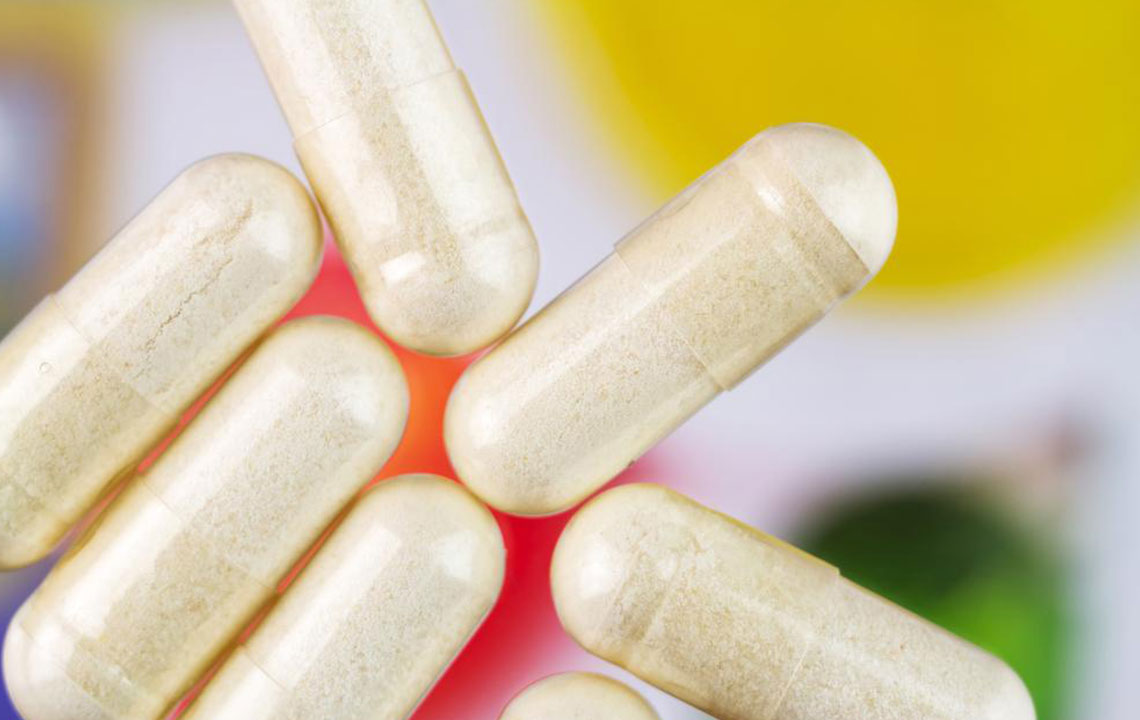Comprehensive Guide to the Natural Benefits and Uses of Berberine Supplements
This comprehensive guide delves into the natural benefits, uses, and safety considerations of berberine supplements. Derived from plants like Oregon grape and turmeric, berberine has been used traditionally for centuries and is now scientifically recognized for its antimicrobial, metabolic, and cardiovascular benefits. It helps regulate blood sugar, improve cholesterol levels, support gut health, and may even have anti-cancer properties. The article emphasizes responsible use, potential side effects, and consultation with healthcare providers to maximize berberine's benefits safely, making it an essential resource for those exploring natural health options.

Comprehensive Guide to the Natural Benefits and Uses of Berberine Supplements
In recent years, natural health supplements have gained popularity for their potential to support various aspects of health, and among these, berberine stands out due to its impressive array of benefits. Derived from several plants including Oregon grape, goldenseal, and turmeric, berberine is a bright yellow compound known for its medicinal properties. Its traditional use dates back centuries in herbal medicine, especially in Chinese and Ayurvedic practices, where it was valued for its antimicrobial and anti-inflammatory qualities. Today, scientists and health enthusiasts continue to explore its potential, culminating in a surge of natural berberine supplements available globally. If you’re considering incorporating berberine into your health routine, understanding its many benefits, mechanisms, and precautions is crucial to make an informed decision.
Understanding Berberine: Origins and Significance
Berberine is classified as an isoquinoline alkaloid found in over 500 plant species. Historically, it has been used in traditional medicine systems for treating digestive disorders, infections, and inflammatory conditions. Its vibrant yellow pigment not only makes it recognizable but also highlights its role as a natural dye. Recently, scientific research has begun to unravel its molecular mechanisms, revealing a range of therapeutic effects especially relevant for modern health challenges such as obesity, diabetes, cardiovascular diseases, and cancer. This renewed interest has led to the development of standardized berberine supplements, which aim to harness its benefits in a convenient form.
Primary Health Benefits of Berberine Supplements
Berberine's health-promoting properties are broad, addressing multiple physiological systems. Here’s a detailed exploration of its key benefits:
Antimicrobial and Antibacterial Power
One of berberine’s most notable features is its potent antimicrobial activity. It effectively damages bacterial proteins and DNA, thereby inhibiting bacterial growth and proliferation. Laboratory studies have demonstrated berberine’s effectiveness against common pathogenic bacteria such as Staphylococcus aureus, including strains resistant to certain antibiotics. This makes berberine a natural option for supporting immune health by combating bacterial infections that cause pneumonia, skin infections, and gastrointestinal issues.
Regulation of Blood Glucose and Diabetes Management
Diabetes, especially type-2, is a widespread metabolic disorder characterized by insulin resistance and elevated blood sugar levels. Berberine has shown remarkable promise in helping regulate blood glucose. It works by activating an enzyme called AMP-activated protein kinase (AMPK), which plays a central role in cellular energy homeostasis. Activation of this enzyme improves insulin sensitivity, enhances glucose uptake by cells, and reduces glucose production in the liver. Clinical studies consistently reveal that berberine can lower fasting blood sugar, HbA1c levels, and improve overall glycemic control, sometimes being as effective as conventional medications like metformin.
Cholesterol and Cardiovascular Health
Maintaining healthy cholesterol levels is vital for preventing cardiovascular diseases. Berberine positively impacts lipid metabolism by reducing levels of LDL cholesterol and triglycerides while increasing HDL cholesterol. It influences cholesterol homeostasis through mechanisms involving the regulation of LDL receptor expression and inhibition of enzymes that produce cholesterol in the liver. These effects contribute to arterial health, decrease plaque formation, and reduce the risk of heart attacks and strokes.
Blood Pressure and Hypertension Control
High blood pressure, or hypertension, is a significant risk factor for heart disease. Berberine’s vasodilatory effects help relax blood vessel walls, improving blood flow and reducing pressure. Studies have observed that regular berberine supplementation can modestly lower systolic and diastolic blood pressure, potentially reducing the need for pharmaceutical interventions in some cases. It works synergistically with other cardiovascular health strategies such as diet and exercise.
Benefits for Women with PCOS
Polycystic ovary syndrome (PCOS) is a complex hormonal disorder often associated with insulin resistance and increased risk of metabolic syndrome. Berberine has been shown to help regulate menstrual cycles, improve insulin sensitivity, and lower testosterone levels in women with PCOS. It can also help balance cholesterol and reduce symptoms like hirsutism and acne. These benefits make berberine an attractive natural supplement for managing PCOS alongside conventional treatments.
Gut Health and Microbiome Support
Emerging research underscores the importance of a healthy gut microbiome in overall wellness. Berberine has prebiotic-like effects, helping eradicate pathogenic bacteria while encouraging the growth of beneficial bacteria. It supports digestion, prevents gut-related illnesses, and may even improve nutrient absorption. Its antimicrobial activity is selective enough to promote a balanced microbiota, which is essential for immune regulation and metabolic health.
Potential Anti-Cancer Effects
Preliminary studies suggest berberine may possess anti-cancer properties. Laboratory experiments indicate that it can inhibit the growth and spread of various cancer cell lines, including those associated with lung, ovarian, and liver cancers. The mechanisms involve inducing cancer cell apoptosis (programmed cell death), inhibiting proliferation, and modulating signaling pathways involved in cancer development. Although more clinical trials are needed, berberine’s potential as an adjunct in cancer therapy is promising.
Additional Health Benefits of Berberine
Beyond the primary effects, berberine offers other health advantages, making it a versatile supplement:
Reduction of Chronic Inflammation
As a potent antioxidant, berberine helps neutralize free radicals and reduce oxidative stress. Its anti-inflammatory properties contribute to the prevention of chronic diseases such as atherosclerosis, arthritis, and neurodegenerative conditions.
Support for Mental and Mood Health
Emerging evidence suggests berberine may positively influence mental health by reducing symptoms of depression and enhancing mood stability. Its anti-inflammatory and neuroprotective effects are believed to play a role in these benefits.
Management of Fatty Liver Disease
Fatty liver disease, often linked to obesity and metabolic syndrome, involves excess fat accumulation in the liver. Berberine can reduce hepatic fat content by improving lipid metabolism and decreasing liver inflammation, thus aiding in the reversal or management of fatty liver conditions.
Safety Considerations and Precautions
While berberine is generally considered safe when used appropriately, certain precautions are necessary:
Possible Side Effects
Some users may experience gastrointestinal discomfort, including nausea, diarrhea, or constipation. These effects are usually mild and transient. It's advisable to start with a lower dose and gradually increase as tolerated.
Drug Interactions and Medical Advice
Berberine can interact with various medications, particularly those affecting blood sugar and blood pressure, such as diabetic medicines and antihypertensives. Consulting a healthcare professional before starting berberine is crucial, especially for individuals on multiple medications.
Who Should Avoid Berberine
Pregnant or breastfeeding women, children, and individuals with certain liver or kidney conditions should avoid berberine unless advised by a healthcare provider. Proper medical consultation is important for safe use.
Conclusion: Making Informed Decisions About Berberine
Berberine stands out as a natural supplement with multifaceted health benefits, from supporting metabolic health to enhancing cardiovascular and gut health. Its traditional use combined with modern scientific validation underscores its potential as a valuable addition to a health-conscious lifestyle. However, like all supplements, it should be used responsibly, with a clear understanding of its effects and precautions. Dedicated consultation with healthcare professionals will ensure safe and effective integration of berberine into your health regimen for optimal results and wellbeing.





